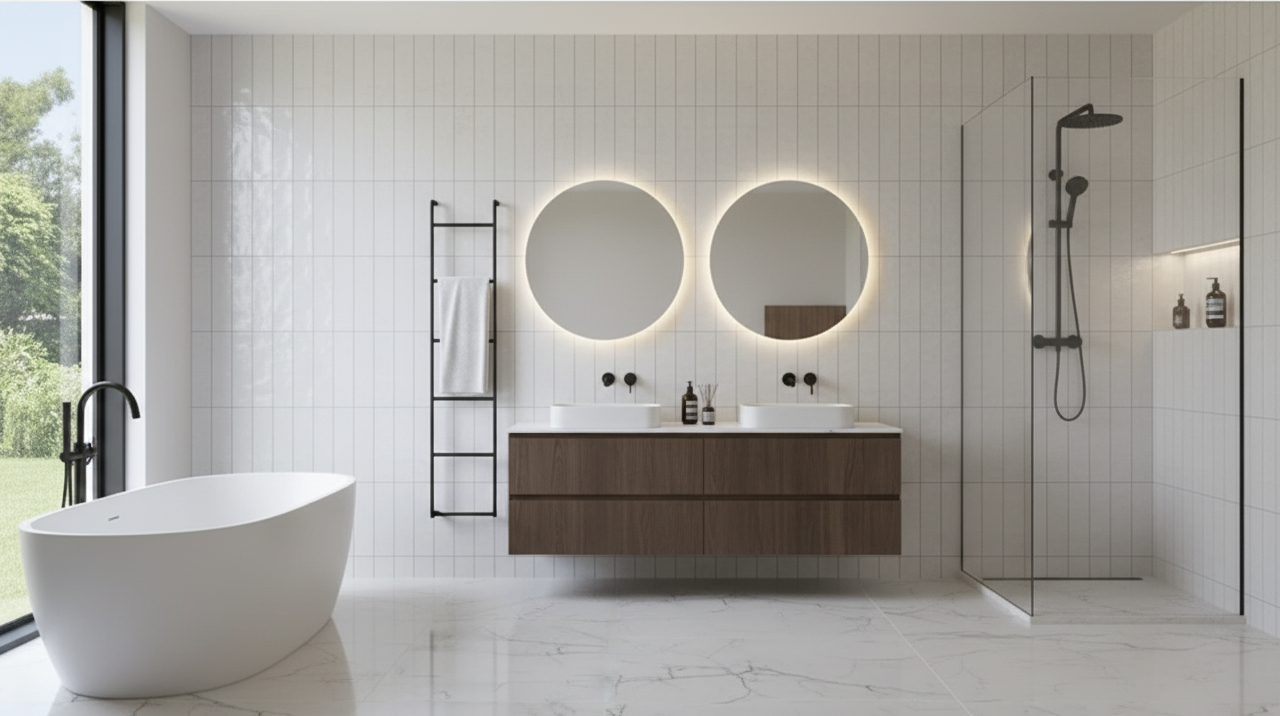When planning a new bathroom or updating an old one, selecting the right flooring is one of the most important decisions you’ll make. Bathroom floors need to be practical and durable, but they should also look good. Tiles are often the go-to choice because they offer both style and functionality. With so many types available, the challenge is figuring out which option works best for your needs. This guide will walk you through the key factors to consider and highlight some of the top tile choices.
Why Bathroom Flooring Matters
The floor sets the tone for your entire bathroom. It influences both the design and the functionality of the space. Here’s why choosing the right tiles is crucial:
- Moisture Resistance – Bathrooms are damp by nature. Tiles must resist water to prevent damage and last longer.
- Safety – Wet floors can be slippery. Tiles with non-slip finishes help prevent accidents.
- Easy Maintenance – Bathrooms get messy quickly. Low-maintenance tiles save time and keep the space hygienic.
- Style – The right tile design enhances the overall look and atmosphere.
- Resale Value – A well-finished bathroom can boost your home’s value and appeal to buyers.
Factors to Consider Before Choosing Bathroom Tiles
- Water Resistance – Pick tiles designed to handle constant water exposure.
- Slip Resistance – Textured or slip-rated tiles are safer in wet areas.
- Durability – Floors endure daily use, so durability is essential.
- Maintenance – Smooth, non-porous surfaces are easier to clean.
- Design – Think about colors, textures, and patterns that suit your bathroom style.
- Budget – Quality varies with price, so find a balance between cost and performance.
- Installation – Some tiles are DIY-friendly, while others need professional fitting.
- Comfort – Tiles can feel cold, so consider underfloor heating for extra comfort.
Popular Bathroom Floor Tile Options
- Ceramic Tiles: Affordable, durable, and water-resistant when glazed. Available in many colors and designs.
- Porcelain Tiles: Stronger and more water-resistant than ceramic. Ideal for modern, sleek bathrooms.
- Natural Stone Tiles: Options like marble, slate, or travertine add luxury but need sealing for water protection.
- Vinyl Tiles: Budget-friendly, easy to install, and moisture-resistant, with styles that mimic wood or stone.
- Terrazzo Tiles: Stylish with a speckled look; durable when sealed.
- Cement Tiles: Bold patterns and colors make them great for statement floors. Sealing is required.
- Glass Tiles: Elegant and stain-resistant, but can be slippery when wet.
- Laminate Tiles: Inexpensive and available in stone or wood looks, though not fully waterproof.
Best Practices for Installation
- Prepare the subfloor properly—clean, level, and dry.
- Use the right adhesive for your chosen tile.
- Seal grout lines to block moisture and mold.
- Add expansion joints to prevent cracks.
- Ensure floors slope slightly toward drains in wet areas.
- Hire professionals for tricky installations or natural stone tiles.
Maintenance Tips
- Sweep or vacuum regularly to prevent dirt buildup.
- Mop with mild cleaners—avoid harsh chemicals.
- Clean spills quickly, especially on stone tiles.
- Reseal grout lines periodically to maintain water resistance.
- Use rugs or mats near showers and sinks to reduce water exposure.
✅ In summary: The best bathroom floor tiles depend on your priorities—whether it’s style, durability, safety, or budget. By weighing these factors and exploring different tile types, you can choose flooring that looks beautiful, performs well, and lasts for years.




